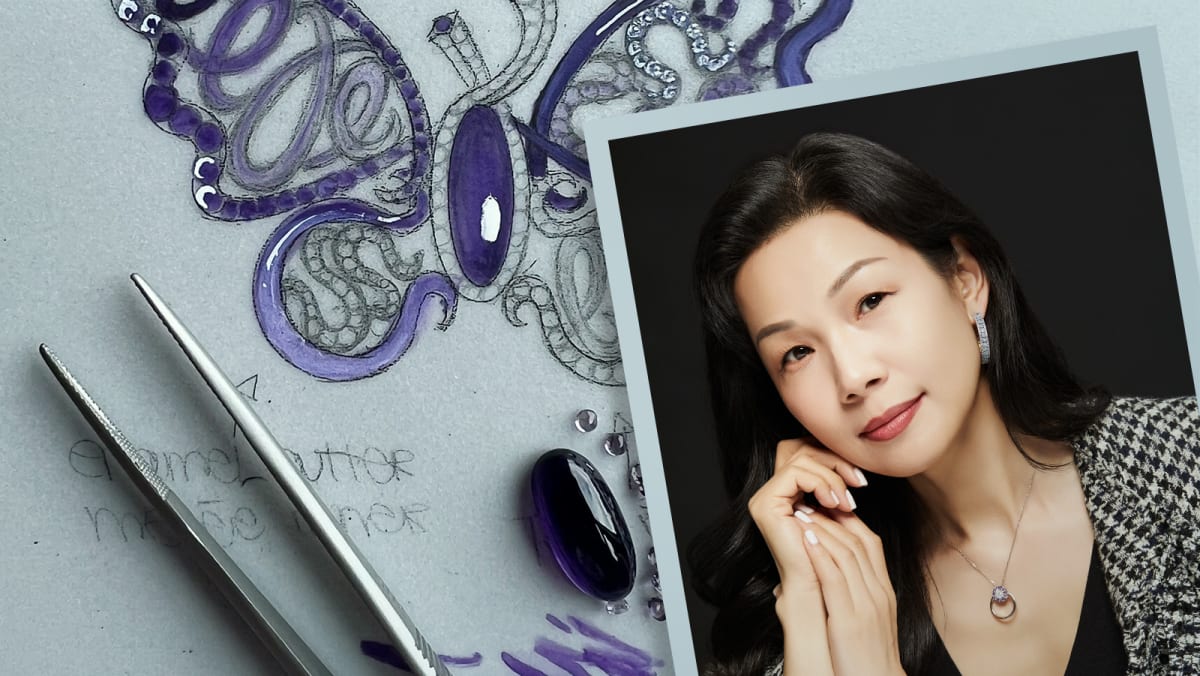Jessie Murph on Her Alabama Upbringing and New Album 'Sex Hysteria'
The Alabama-raised hitmaker on Sex Hysteria — and why she's finally ready to sing about her past
When Jessie Murph returns home to northern Alabama, she heads to the gas station for an oversize cup of boiled peanuts. It’s one of several rituals she now enjoys when she comes back to the region that Murph despised growing up in and fled as a teenager.
“My relationship with home has changed so much since I’ve left,” says Murph, who grew up in a town called Athens (home to the Alabama Shakes). “I really remember being 15, 16, even younger, and just knowing that I was not meant to be there. I didn’t feel right there. But I go back and I’m so grateful to be there. There’s something so sweet, something very nostalgic and beautiful, about the South.”
Murph can’t find boiled peanuts in Los Angeles, where over the past few years she’s launched her career as a fast-rising pop star who’s collaborated with Jelly Roll, Diplo and BigXthaPlug. That rise will only accelerate with Sex Hysteria, her bold second album, due later this week. The record hops from Amy Winehouse-inspired classic R&B (“1965,” “Touch Me Like a Gangster”) to pop-rap earworms (the Top 20 hit “Blue Strips”) to downcast balladry that channels one of Murph’s heroes, Lana Del Rey (“Heroin”). The album, which she says she boiled down from 100 or so songs she wrote for the record, features two of Murph’s favorite artists, Lil Baby and Gucci Mane.
Murph hopes that her daring new collection — with its “‘fuck it and we’ll see what happens’ energy,” as she puts it — displays more sides of herself than she’s previously shown, including her chops as a songwriter. The past year, she says, has been one of her most creative: She says she both wrote and recorded two of the album’s tracks — “A Little Too Drunk” and “Blue Strips”— in a half-hour. “I feel very misunderstood sometimes,” says Murph. “I don’t think people have seen the half of what I’m capable of.”
Part of that is because, as Murph says herself, she’s been reluctant to share all that much about her own life, including an Alabama upbringing that she’s alluded to as having been very dark. She’s thus far much preferred leaving her most vulnerable moments for her songs.
Murph writes about this dynamic in “Gucci Mane,” the album’s opening track. The song alludes to the “fucked up things” the narrator’s father once did. “I don’t want to talk about it,” Murph sings in the chorus. “I wanna write my way around it.”
The most vulnerable moment on the record is “The Man That Came Back,” a piano ballad addressed to a character who is seemingly a broken father who tries to redeem himself after inflicting pain and violence on his family. In it, Murph sings about a “daughter who grew up trusting no one” left to deal with “the bruises on her skin.”
Murph wrote the song about three years ago. “I’ve refused to put it out because it was too vulnerable, and this is the first time I’ve had enough balls to put it on a project,” she says. “It’s about things I would otherwise never talk about.”
During a recent interview in Rolling Stone, Murph was guarded but self-reflective. But she’s learning totake that armor off, at least in her music. “You do receive pressure from the label and people on your team to be more autobiographical,” she says. “So I had some talks before this album and that was a concern: ‘You don’t really talk about yourself.’ And I realized they were right. I never really talked about the past, and I’ve had an interesting upbringing, so that’s something I felt pressure to do a little bit on this album. Once I did, I realized it was something I was holding myself back from out of fear.”
GROWING UP IN north Alabama, Murph was always finding a bogus rule she needed to break. “Even when I was very little, in elementary school, I remember always being so pissed off about dress codes,” she says. “I thought they were so stupid and so catered towards [men.]” She was forced to run laps when she posted songs online with curses. Adults around her policed the clothes she wore to gym as a teenage girl. All her friends around her dreamed of becoming housewives the moment they graduated high school. The Southern, conservative culture she grew up amid was, she felt from an early age, full of hypocrisy and double standards. She bristled against all of it, “anything that felt like a dress code, is what I’m trying to say.”
Murph fled town as a teenager, eventually making her way to Nashville. She’d grown up on Drake and Mac Miller and started incorporating rap and hip-hop into her music. Today, Murph is adjacent to contemporary country music, has collaborated with many of the genre’s contemporary hitmakers, and, like Morgan Wallen and Jelly Roll, is a white Southern artist singing music that borrows heavily from Black forms like R&B and sonic innovations like trap drums.
But Murph is not a country artist: Though she briefly lived in Nashville, and had quite a bit of fun there, it was not, ultimately, for her. She didn’t relate to the industry’s standard of going to an office every day to write a new song with an anonymous songwriter, and she found some of those collaborators to be unwelcoming. “In the bro country scene, sometimes they’re a little hectic with women,” she says. “I’ve definitely met rude people in sessions, and you can tell they just don’t respect women. That’s definitely a thing.”
Murph is no longer in Nashville, but as she quickly emerges into the public’s consciousness (“Blue Strips” is her first solo hit), she’s now dealing with a whole new host of dress codes and expectations placed upon her as a young woman in the music industry. “I started out at 16 or 17, and a big thing has been people being like, ‘I miss the old Jessie’ or shit like that,” she says. “Some people want that version of you which is unhealthy and realistic.”
“I was really fucked up when I was 17,” she continues. “I was very severely depressed, dealing with a lot of shit. I was really struggling and I think people like to have music they can relate to. I’m very grateful for the music I put out during that’s just not … ”
Murph trails off before collecting her thoughts. “Thank God I’m past some of that.”
Instead, Murph is already looking ahead at the future, at what she hopes will be a long career in which she’s allowed to evolve. She wants to one day make a record that belongs alongside her shelf of vinyl albums by her favorites like Alicia Keys, J. Cole, Taylor Swift, SZA, Noah Kahan, and, of course, Amy Winehouse and Lana Del Rey. “I want to make something that is completely and utterly timeless, like it could have been made 50 years ago,” she says. “I’m very inspired by Elton John, Don McLean, Adele, stuff like that.”
For now, Murph says, “I’m having fun and experiencing life, but eventually I want to drop a very serious [record]. Not that this new one isn’t serious, but I feel like I have a lot to show the world that people haven’t seen yet. I think it’ll come with time.”
You may also like...
Diddy's Legal Troubles & Racketeering Trial

Music mogul Sean 'Diddy' Combs was acquitted of sex trafficking and racketeering charges but convicted on transportation...
Thomas Partey Faces Rape & Sexual Assault Charges

Former Arsenal midfielder Thomas Partey has been formally charged with multiple counts of rape and sexual assault by UK ...
Nigeria Universities Changes Admission Policies

JAMB has clarified its admission policies, rectifying a student's status, reiterating the necessity of its Central Admis...
Ghana's Economic Reforms & Gold Sector Initiatives

Ghana is undertaking a comprehensive economic overhaul with President John Dramani Mahama's 24-Hour Economy and Accelera...
WAFCON 2024 African Women's Football Tournament

The 2024 Women's Africa Cup of Nations opened with thrilling matches, seeing Nigeria's Super Falcons secure a dominant 3...
Emergence & Dynamics of Nigeria's ADC Coalition

A new opposition coalition, led by the African Democratic Congress (ADC), is emerging to challenge President Bola Ahmed ...
Demise of Olubadan of Ibadanland
Oba Owolabi Olakulehin, the 43rd Olubadan of Ibadanland, has died at 90, concluding a life of distinguished service in t...
Death of Nigerian Goalkeeping Legend Peter Rufai

Nigerian football mourns the death of legendary Super Eagles goalkeeper Peter Rufai, who passed away at 61. Known as 'Do...





